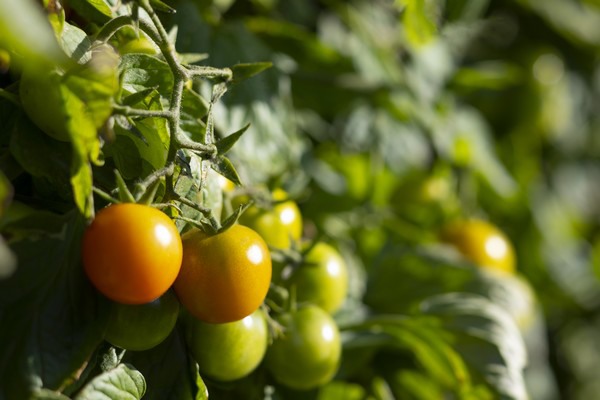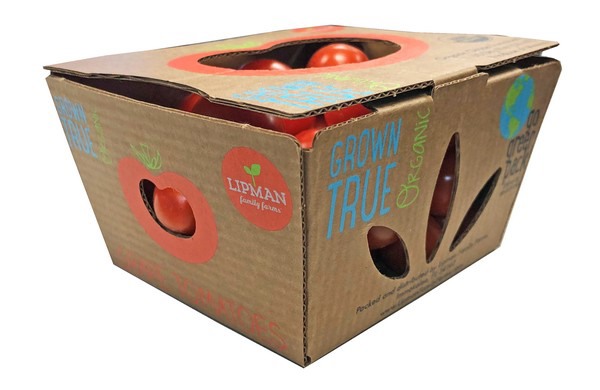 The dynamics of growing tomatoes in open fields versus a controlled environment are very different. “With open fields, it definitely requires a collaborative effort to keep the impact on the environment minimal,” explains Louis DeMaso, Sustainability and Operations Analyst with Lipman Family Farms. The company grows tomatoes as well as other vegetables in both open field and controlled environments and discusses what it takes to grow sustainably in an outdoor environment. “It involves taking steps in every point of the supply chain from water conservation efforts to pest management programs to large-scale testing and research in our own breeding program.”
The dynamics of growing tomatoes in open fields versus a controlled environment are very different. “With open fields, it definitely requires a collaborative effort to keep the impact on the environment minimal,” explains Louis DeMaso, Sustainability and Operations Analyst with Lipman Family Farms. The company grows tomatoes as well as other vegetables in both open field and controlled environments and discusses what it takes to grow sustainably in an outdoor environment. “It involves taking steps in every point of the supply chain from water conservation efforts to pest management programs to large-scale testing and research in our own breeding program.”
Water and pest management
Growing tomatoes outside can require a lot of water. “We use a fully automatic drip irrigation system that allow us to reduce water usage by up to 70 percent,” said DeMaso. That same dripline also allows the company to apply liquid fertilizer, resulting in more efficient nutrient use and better yields.
Open fields are more susceptible to pests and practicing Integrated Pest Management (IPM) has turned out to be an effective environmentally sensitive approach to pest control. “It relies on a combination of practices beginning at the scouting department,” commented DeMaso. Scouts regularly roam the fields checking which pests are teasing plants. This is followed by applying the best pest control method, which could include biological controls such as natural vegetation and predatory bugs. These controls provide the least possible hazard to people, property, and the environment, promoting the natural resilience of the produce.

Breeding program
The cornerstone of Lipman Family Farms has been its own breeding program, first introduced in 2004. Every year, the company develops new hybrids and tests about 300 tomato varieties. “We are constantly looking for plant and produce varieties that are resistant to diseases, higher in brix and flavor, and physically resilient to extended shelf life.”
In addition to having its own farms, Lipman works with a variety of local growers throughout the US. “With 13 repack facilities strategically built across the continent, we have an efficient turnaround time to optimize product freshness with a minimal CO2 footprint. We are always on the lookout for local partnerships to establish a year-round supply across communities and to help local farmers expand their operations,” DeMaso added.

Clamshell packaging
Sustainability is not just limited to Lipman’s growing operations. One of the latest sustainable developments is compostable clamshell packaging that was developed for the Grown True™ organic grape tomato line. “The cardboard clamshell packaging offers 100 percent backyard compostability, providing an innovative, sustainable solution for consumers,” said DeMaso. “We’re looking forward to continuing to grow in our commitment to sustainable practices, and hope to further reduce our impact on the environment in every step of the supply chain.”
For more information:
Anna Nelson
Lipman Family Farms
anna.nelson@edelman.com
https://www.lipmanfamilyfarms.com
